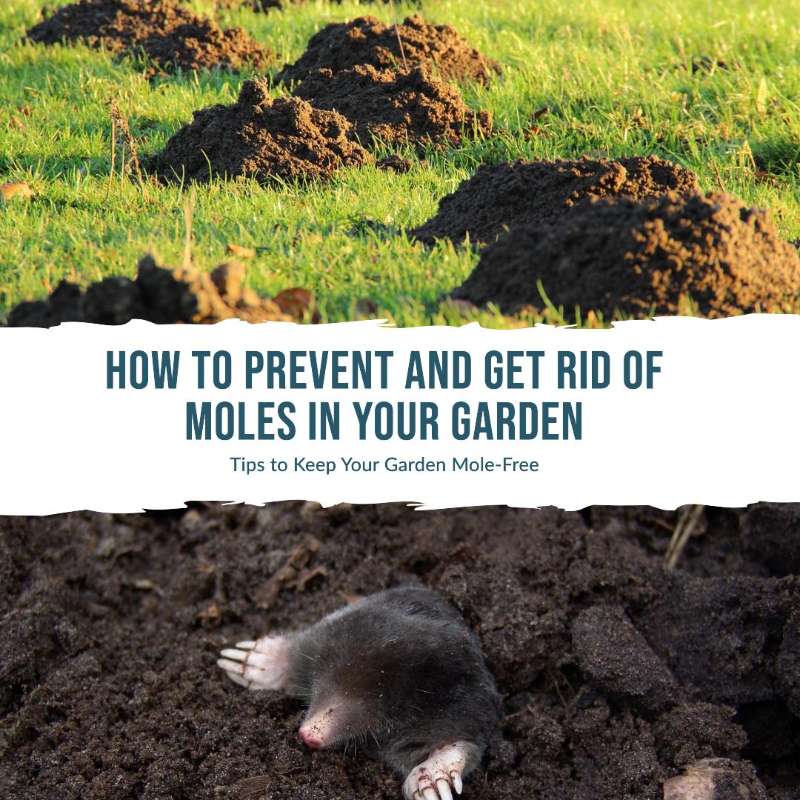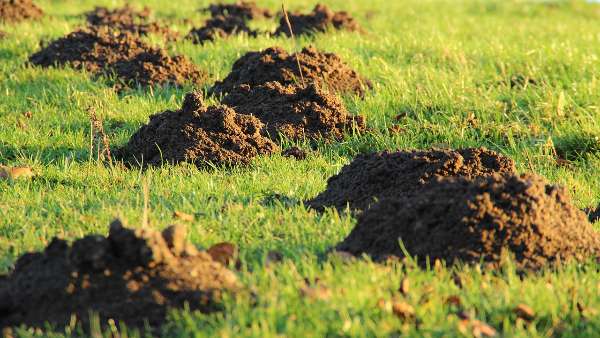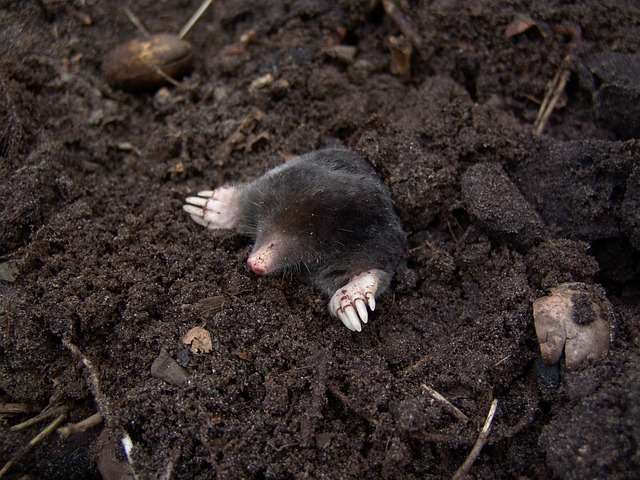How To Prevent and Get Rid Of Moles in Your Garden

Moles, those tiny tunneling creatures, can wreak havoc on a meticulously tended garden. Their underground antics can disrupt root systems, create unsightly mounds, and frustrate even the most patient of gardeners.
While it’s tempting to resort to drastic measures to rid your garden of these critters, there are effective and humane ways to manage them. Here’s a guide on how to prevent and remove moles from your garden using natural methods that won’t harm the animals.
Understanding Moles
Before diving into prevention and removal techniques, it’s essential to understand moles’ behavior. Moles are insectivores that tunnel underground in search of food, primarily earthworms, grubs, and insects.
They are solitary creatures, and their tunneling habits are largely motivated by the pursuit of food and shelter. Moles’ presence in your garden often indicates an abundant supply of soil-dwelling insects.

Prevention Techniques
- Maintain Healthy Soil: Healthy, well-aerated soil reduces the presence of grubs and other insects that moles feed on. Regularly aerating your soil and incorporating organic matter can deter moles by making it less hospitable for their prey.
- Remove Food Sources: Since moles primarily feed on insects, reducing the population of grubs and other soil-dwelling pests can discourage their presence. Consider using natural methods like nematodes or beneficial insects to control pest populations in your garden.
- Install Barriers: Creating physical barriers can prevent moles from accessing certain areas of your garden. Use wire mesh or hardware cloth to line the bottom of raised beds or install underground barriers around sensitive areas.
- Plant Barrier Plants: Certain plants, such as marigolds, alliums, and fritillaries, are known for their ability to repel pests like moles. Integrate these plants strategically throughout your garden to create a natural deterrent.

Removal Techniques
- Castor Oil Repellent: Castor oil-based repellents can be effective in driving moles away from your garden. Mix castor oil with water and dish soap and spray it onto affected areas. Reapply after heavy rain.
- Use Vibrations: Moles are sensitive to vibrations, so installing vibrating devices in the ground can disrupt their tunneling activity. You can find solar-powered mole repellers that emit vibrations at regular intervals.
- Create Noise and Disturbance: Since moles have sensitive hearing, creating noise and disturbance can encourage them to relocate. Inserting empty glass bottles into the soil or placing wind chimes near their tunnels can be effective deterrents.
- Natural Predators: Encouraging natural predators like owls, snakes, or domesticated animals such as cats to frequent your garden can help control mole populations. However, this method may not be suitable for all gardeners.

Maintenance and Monitoring
Regular maintenance and monitoring are crucial for successful mole management. Inspect your garden frequently for signs of mole activity, such as fresh mounds or tunneling. By staying proactive and implementing a combination of prevention and removal techniques, you can effectively manage mole populations in your garden without resorting to harmful methods.
Conclusion
Dealing with moles in your garden can be challenging, but it’s possible to coexist with these underground dwellers using natural and humane methods. By understanding their behavior and implementing preventative measures, you can minimize mole damage and maintain a thriving garden ecosystem.
Remember to approach mole control with patience and persistence, as it may take time to see results. With dedication and the right strategies, you can enjoy a mole-free garden without harming these fascinating creatures.